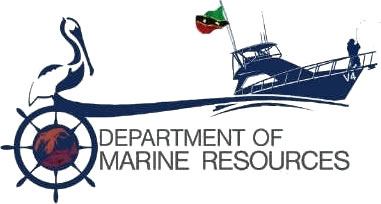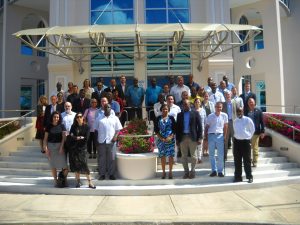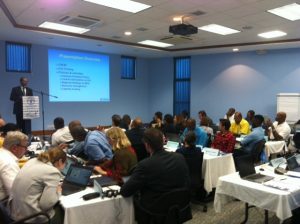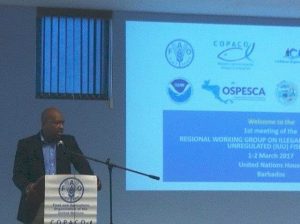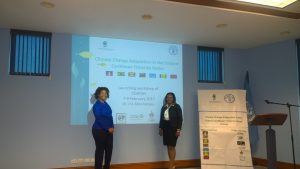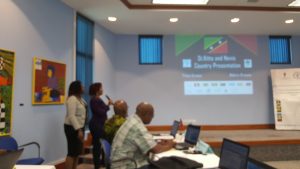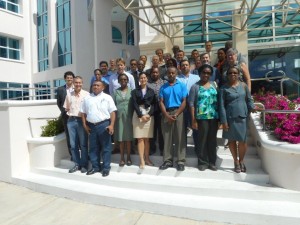Sargassum Management Plan in progress
July 27, 2017 – The Department of Marine Resources in collaboration with the Food and Agriculture Organisation (FAO), under the project Climate Change Adaptation in the Eastern Caribbean Fisheries Sector (CC4FISH), hosted a Sargassum Management Plan workshop. This plan will address the accumulation of Sargassum on St. Kitts & Nevis coasts and marine environment. Key stakeholders including Governmental Agencies, Non-Governmental Organisations (NGO) and Fisherfolk organizations that are directly or indirectly affected by Sargassum influx were present.
Ms. Orisia Williams, CC4Fish National Project Coordinator, presented the results of surveys pertaining to the effects of Sargassum influxes. Ms. Nikkita Browne, CC4Fish National Focal Point, explained the two types of Sargassum found within the Caribbean, where they originate and the impacts of Sargassum.
Dr. Leighton Narraine, Clarence Fitzroy Bryant College (CFBC) Professor, highlighted an experiment that was conducted by the CFBC students. The experiment used pulverized Sargassum to fertilize various plants which shows Sargassum being an effective fertilizer. He concluded that although the Sargassum influx is unpredictable, local residents should explore commercializing this product.
Participants then completed a draft Plan for the Management of the Accumulation of Sargassum on the Coast and Marine Environment of St. Kitts and Nevis.
A validation meeting will be held in October to finalise the Sargassum Management Plan, which will be submitted to Cabinet for approval.
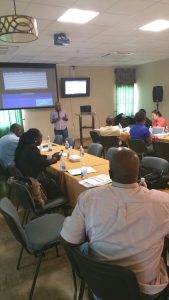
Presentation by Dr Naraine highlighting an experiment that was conducted by the CFBC students
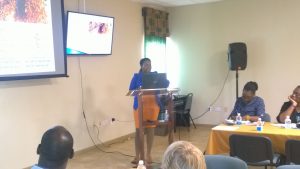
Presentation by Ms. Nikkita Browne, CC4Fish National Focal Point.
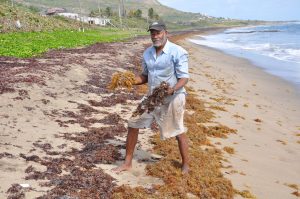
Dr Browne holding Sargassum that washed ashore on Conaree beach.
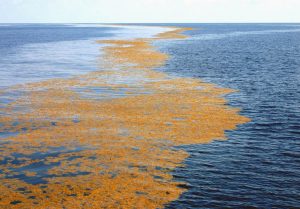
Sargassum floating in the Caribbean Sea.
